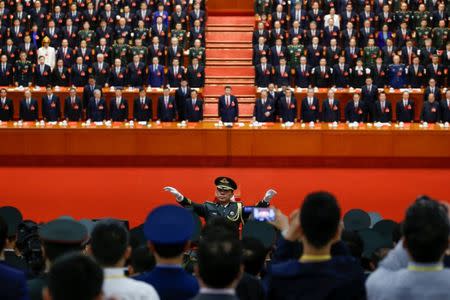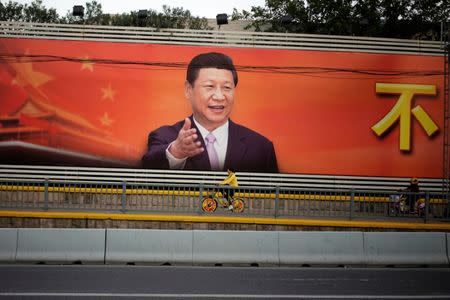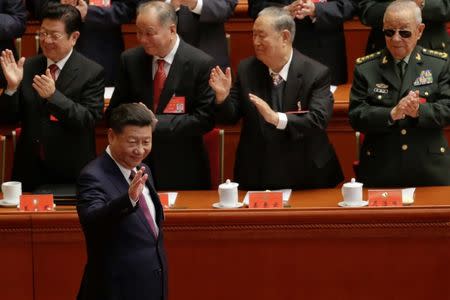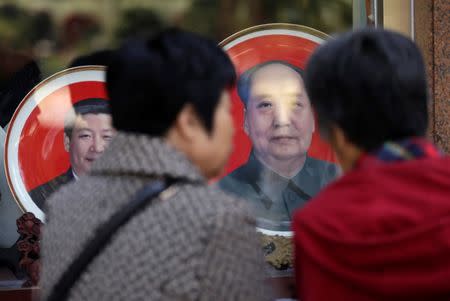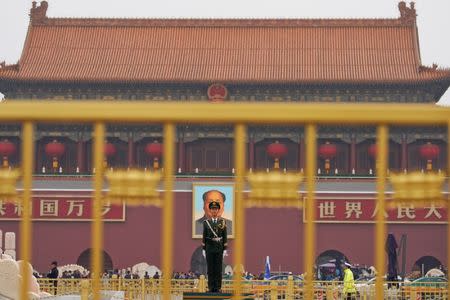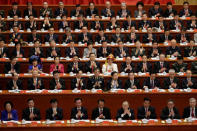China to unveil new leadership line-up as Xi cements power
BEIJING (Reuters) - China's ruling Communist Party reveals its new leadership line-up on Wednesday when President Xi Jinping introduces his Politburo Standing Committee, culminating a week-long party congress. A key measure of Xi's rising influence leading the world's second-largest economy will be how many of his allies are installed on the Standing Committee, the apex of power, which is currently made up of seven people, all men, and headed by Xi, who is also party and military chief. Five members are expected to retire due to an unwritten rule limiting new five-year terms to those under 68. One of the five, a close Xi ally, the anti-corruption chief Wang Qishan, 69, was left off the new Central Committee, which elects the Standing Committee, but he could get another job a few months down the line, sources have said. The new line-up will be announced around midday at the first plenum of the congress. The congress itself formally ended on Tuesday, with Xi having his political theory written into the party's constitution, putting him in the same company as the founder of modern China, Mao Zedong. Who gets on the new Standing Committee remains a closely guarded secret until Xi leads them out before the media in a room inside central Beijing's Great Hall of the People, where all top party events take place. Names in contention include vice-premier Wang Yang, Xi advisers Li Zhanshu and Wang Huning, Shanghai party chief Han Zheng, Guangdong province party boss Hu Chunhua and Zhao Leji, who runs the powerful organization department that oversees personnel decisions such as promotions and demotions. Other contenders include Chen Miner, who heads the party in the southwestern city of Chongqing; Beijing party boss Cai Qi; and Jiangsu province party boss Li Qiang, all of whom are close to Xi. Chen and Cai have enjoyed meteoric rises up the party ranks. Premier Li Keqiang is the only other member of the current Standing Committee apart from Xi who will remain, unless he is unexpectedly left off, which seems unlikely. Previous party congresses have anointed successors for the roles of party head and premier, with Xi and Li both vaulting on to the Standing Committee in 2007 before they were then further promoted to their current roles in 2012. Speculation has swirled in Beijing this week that Xi may break with precedent and not appoint an obvious successor, who would have to be young enough to serve three consecutive terms in the Standing Committee. (Reporting by Ben Blanchard and Benjamin Kang Lim; Editing by Nick Macfie)

